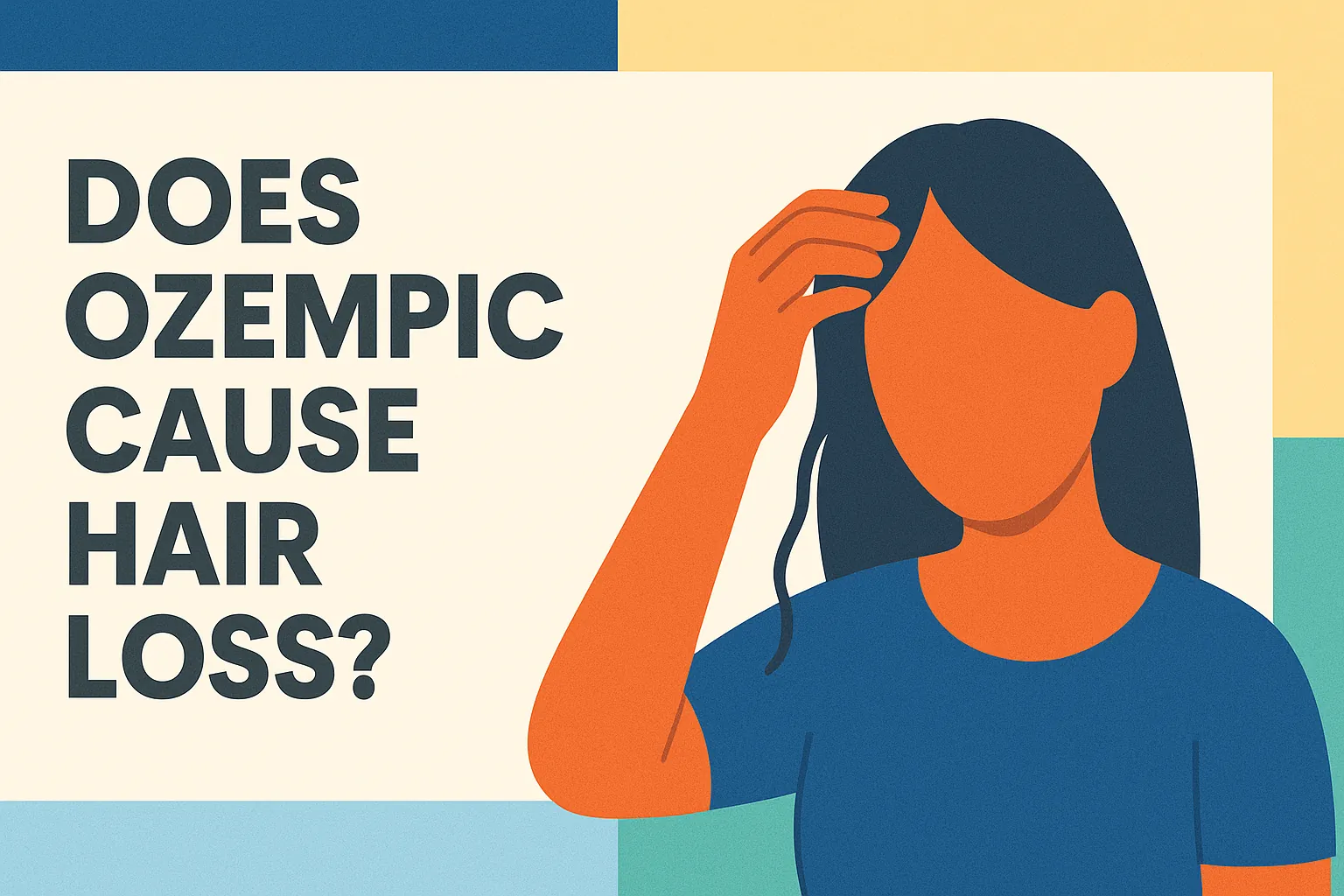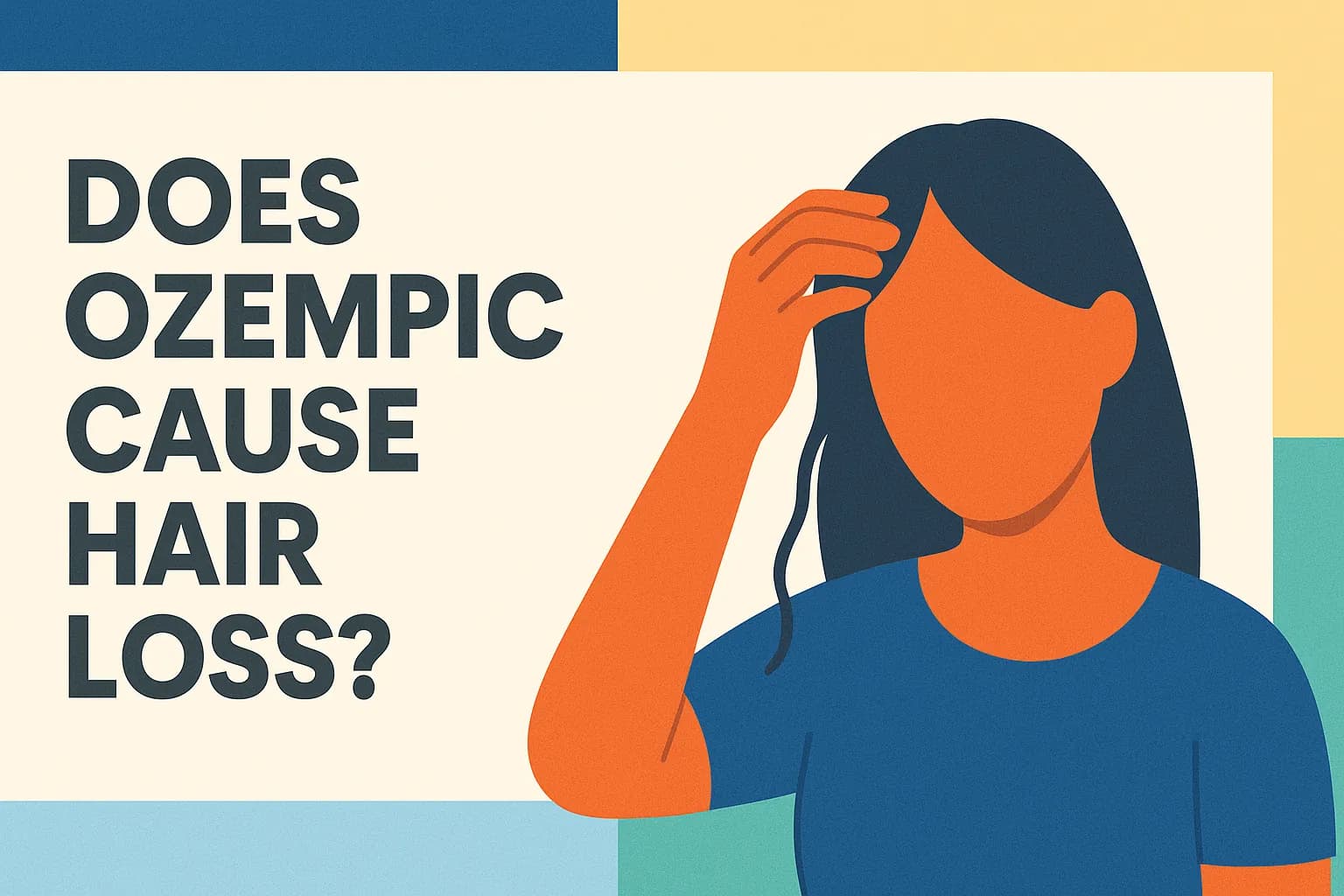Does Ozempic cause hair loss?

Ozempic (semaglutide) is an FDA-approved weekly injection used to lower blood sugar levels in people with type 2 diabetes (T2DM). It is also sometimes used off-label for weight management in certain individuals.
Ozempic aids in insulin release from the pancreas in response to food and prevents your liver from producing extra sugar. It also slows the rate at which your stomach empties, helping you feel fuller longer, decreasing your appetite, and aiding in weight loss. All these factors contribute to improved blood sugar control. Like all medications, Ozempic can cause side effects, including nausea, diarrhea, vomiting, stomach pain, and constipation. It can also lead to serious side effects such as possible thyroid tumors and pancreatitis.
Potential Side Effect: Hair Loss
Although not listed as a side effect in clinical trials, some users have reported hair loss while using Ozempic. In studies with the weight loss drug Wegovy, which contains the same active ingredient as Ozempic, hair loss was reported by some users.
This year, the FDA investigated whether hair loss could be linked to Ozempic and other similar drugs. While there were many reports of hair loss, no direct cause was established.
Why Might Ozempic Users Experience Hair Loss?
The exact cause of hair loss in Ozempic users is unclear, but it could be indirectly related to the medication.
Rapid Weight Loss and Hair Loss
Rapid weight loss can lead to a condition called telogen effluvium, which causes temporary hair loss. This occurs when a large number of hair follicles simultaneously enter the resting phase and then shed hair at the same time, which could be triggered by the weight loss effects of Ozempic.
Shop Medications
Nutritional Deficiencies
Ozempic can reduce appetite, potentially leading to insufficient nutrient intake necessary for hair growth, such as biotin, vitamin D, iron, and zinc.
Diabetes-Related Hair Loss
Type 2 diabetes itself may contribute to hair loss due to hormonal and circulatory changes that can affect hair health and growth.
Managing Hair Loss While Using Ozempic
If experiencing significant hair loss while on Ozempic, it is essential to consult with healthcare providers to determine if the hair loss is medication-related or due to other factors.
- Medication review for alternatives that do not impact hair growth.
- Use of topical treatments like minoxidil to stimulate hair regrowth.
- Maintaining a balanced diet to support hair health.
- Managing stress through exercise, meditation, and other methods to minimize stress-related hair loss.
Recovery of Hair Post-Ozempic
Hair loss from Ozempic is typically temporary. Most users see hair regrowth after the stress of initial weight loss subsides.
Sources
- Zhang, W., et al. (2021). Hair loss after metabolic and bariatric surgery: A systematic review and meta-analysis. Obesity Surgery. Accessed Sept. 25, 2024.
- Blackburn, G. L., et al. (1977). Hair loss with rapid weight loss. Archives of Dermatology. Accessed Sept. 25, 2024.
- OZEMPIC (semaglutide) injection, for subcutaneous use. (2021). Novo Nordisk. Accessed Sept. 25, 2024.
- Tran, Megan M. et al. Dermatologic findings associated with semaglutide use: A scoping review. Journal of the American Academy of Dermatology, Volume 91, Issue 1, 166 – 168. Accessed Sept. 25, 2024.
- Collins L, et al. (2022). Glucagon-like Peptide-1 Receptor Agonists. National Library of Medicine. Accessed Sept. 25, 2024.












